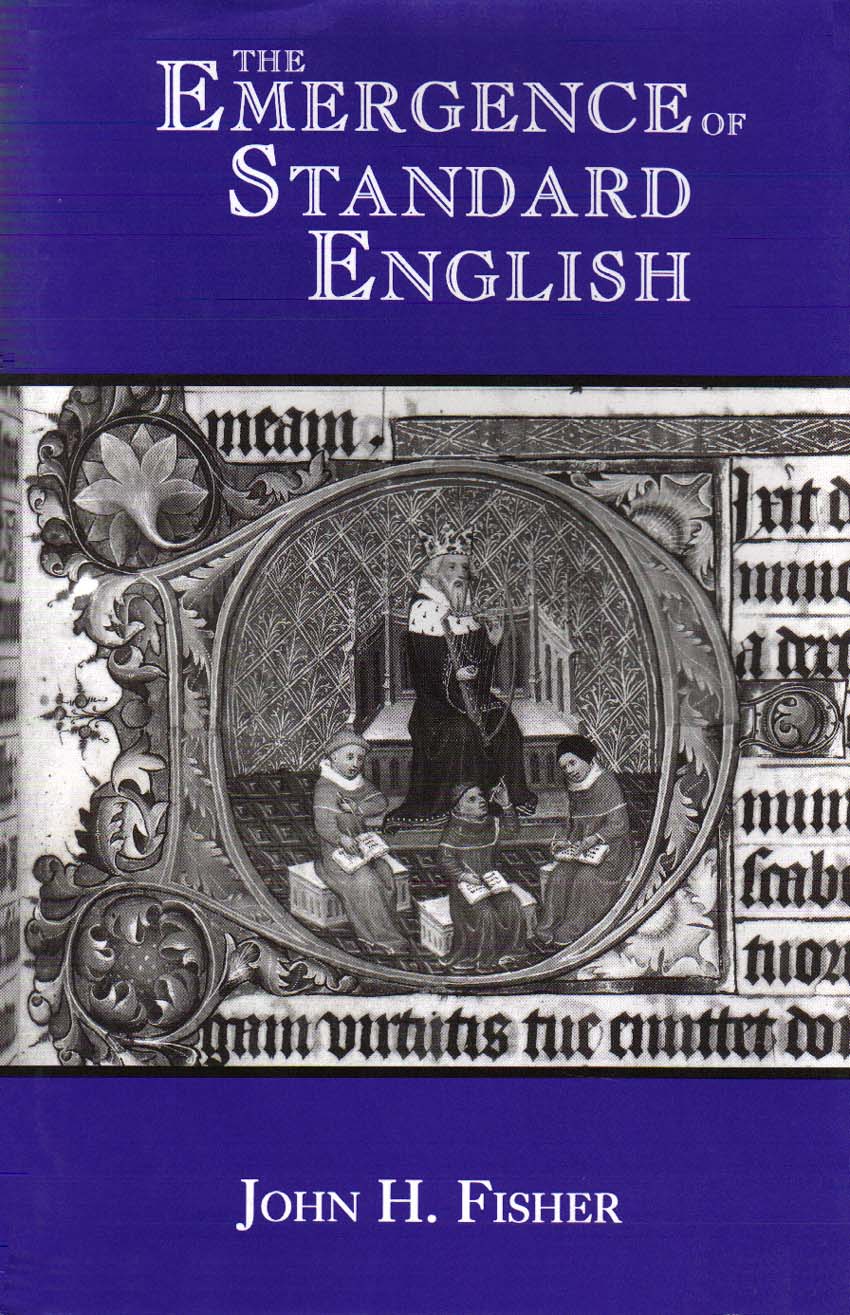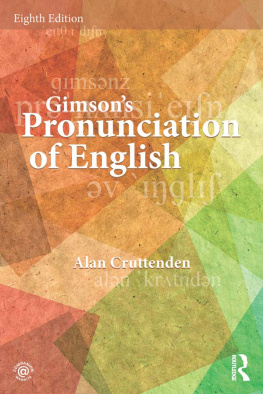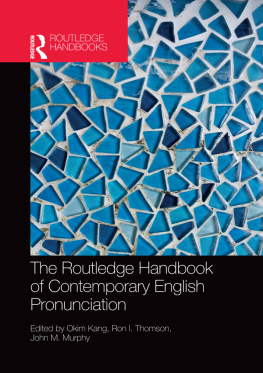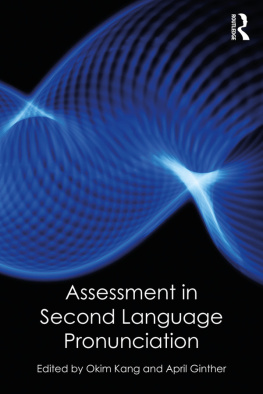Cover

| title | : | The Emergence of Standard English |
| author | : | Fisher, John H. |
| publisher | : | University Press of Kentucky |
| isbn10 | asin | : | 0813119359 |
| print isbn13 | : | 9780813119359 |
| ebook isbn13 | : | 9780813171050 |
| language | : | English |
| subject | English language--Standardization, Great Britain--History, English language--History, Great Britain--Officials and employees--Language, English language--Standardization, Language policy--Great Britain--History, Chaucer, Geoffrey,--d. 1400--Language, Engl |
| publication date | : | 1996 |
| lcc | : | PE524.7.F7 1996eb |
| ddc | : | 427/.02 |
| subject | : | English language--Standardization, Great Britain--History, English language--History, Great Britain--Officials and employees--Language, English language--Standardization, Language policy--Great Britain--History, Chaucer, Geoffrey,--d. 1400--Language, Engl |
Page i
T HE
E MERGENCE OF
S TANDARD E NGLISH
Page ii
Page iii
T HE
E MERGENCE OF
S TANDARD E NGLISH
John H. Fisher
T HE U NIVERSITY P RESS OF K ENTUCKY
Page iv
Copyright 1996 by The University Press of Kentucky
Scholarly publisher for the Commonwealth,
serving Bellarmine College, Berea College, Centre
College of Kentucky, Eastern Kentucky University,
The Filson Club, Georgetown College, Kentucky
Historical Society, Kentucky State University,
Morehead State University, Murray State University,
Northern Kentucky University, Transylvania University,
University of Kentucky, University of Louisville,
and Western Kentucky University.
Editorial and Sales Offices : The University Press of Kentucky
663 South Limestone Street, Lexington, Kentucky 40508-4008
Library of Congress Cataloging-in-Publication Data
Fisher, John H.
The emergence of standard English / John H. Fisher.
p. cm.
Includes bibliographical references and index.
ISBN 0-8131-1935-9 (cloth:alk. paper). ISBN 0-8131-0852-7
(paper:alk. paper)
1. English languageMiddle English, 1100-1500Standardization.
2. Great BritainHistoryHouse of Lancaster, 13991461.
3. English languageMiddle English, 1100-1500History. 4. Great
BritainOfficials and employeesLanguage. 5. English
language19th centuryStandardization. 6. Language policyGreat
BritainHistory. 7. Chaucer, Geoffrey, d. 1400Language.
8. England. Court of ChanceryHistory. 9. English language
Standardization. I. Title.
| PE524.7.F7 1996 |
| 427.02dc20 | 95-16425 |
This book is printed on acid-free recycled paper meeting
the requirements of the American National Standard
for Permanence of Paper for Printed Library Materials.

Page v
For
Jan, Jack, and Judy
Page vi
Page vii
C ONTENTS
Acknowledgments ix
I. Introduction
II. A Language Policy for Lancastrian England
III. Chancery and the Emergence of Standard Written English
IV. European Chancelleries and the Rise of Standard Languages
V. Animadversions on the Text of Chaucer
VI. Chaucer's French: A Metalinguistic Inquiry
VII. Piers Plowman and Chancery Tradition
VIII. Caxton and Chancery English
IX. The History of Received Pronunciation
Notes
Bibliography
Index
Page viii
Page ix
A CKNOWLEDGMENTS
A Language Policy for Lancastrian England. PMLA 107 (1992): 1168-80.
Chancery English and the Emergence of Standard Written English. Speculum 52 (1977): 870-89.
Animadversions on the Text of Chaucer. Speculum 63 (1988): 779-93.
European Chancelleries and the Rise of Standard Languages. Proceedings of the Illinois Medieval Association 3 (1986): 1-33.
Chaucer's French: A Metalinguistic Inquiry. Chaucer Yearbook 1 (1992): 33-46.
Piers Plowman and Chancery Tradition. Medieval Studies for George Kane. Ed. E.D. Kennedy. Cambridge, Eng.: Boydell and Brewer, 1988. 267-78.
Caxton and Chancery English. Fifteenth-Century Studies. Ed. R.F. Yeager. New Haven, Conn.: Archon, 1984. 161-85.
The History of Received Pronunciation. The Ring of Words: Essays Presented to Henry Kratz . Ed. Ulrich Goebel and David Lee. Lampiter, Wales: Mellen, 1994. 41-62.
Page x
Page 1
I
I NTRODUCTION
F or more than a quarter of a century I have become increasingly convinced that Standard Modern English did not just happen but that it was, and is, the result of formal institutionalization, that is, of deliberate planning and management. This idea is anathema to the Anglo-Saxon temperament, which resists the notion of social engineering, but the institutionalization of language is supported by the experience of other cultures, particularly those of France and Spain. In 1253 Alphonso X of Spain decreed that the usage of the Chancellery of Toledo should be the standard for all official documents. In 1257 St. Louis of France indicated that official correspondence was to be written in the French of the Chancellerie Royale in Paris, and the 1539 ordinance of Villers-Cotterets legally established chancellery French as the language of law and administration.
Linguistic historians, preferring to believe that languages live and die by social evolution, have a hard time allowing for influences such as these. Besides, we have no record of any such formal promulgations in England. Professors Baugh and Cable in their History of the English Language have an interesting discussion (259ff) of the seventeenth-century movement in England for the establishment of an academy, like the academies in Italy and France, to control the development of the language. Years of foot-dragging, however, even
Page 2
tually left management of the language in the hands of entrepreneurial lexicographers and grammarians, where it still rests today in Great Britain and America. This congenital resistance to official control of the language is reflected in contemporary resistance to making English the legal language of the United States. A recent article by Jack Citrin and others, The Official English Movement and the Symbolic Politics of Language in the United States, is particularly interesting. It summarizes the U.S. English lobby, sponsored by S.I. Hayakawa, for amending the Constitution to make English the official language of the United States. By 1988, forty-eight states had considered this proposition and eighteen had passed laws making English the official language. Thirty states rejected the proposition, mostly on the ground that it was unnecessary. Tables in Citrin's article show that the proposition was in direct response to the influx of non-English-speaking immigrants after World War II, that the states enacting laws were those with the smaller numbers of immigrants, and that the movements both for and against English as an official language were largely symbolic, supported by abstract notions of national identity.
Next page










